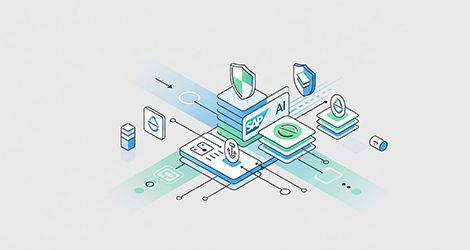The Use of AI in Supply Chain Demand Forecasting

Demand forecasting is a crucial process in the supply chain, as it helps companies predict future market needs. Accurate demand forecasting enables companies to optimize inventory and ensure products are readily available when needed. Below is a detailed discussion on the use of AI in supply chain demand forecasting.
Why Is Demand Forecasting Necessary in the Supply Chain?
Demand forecasting is essential in supply chain management for several reasons. Accurate market demand predictions help companies minimize the risks of overstocking or understocking.
- Overstocking leads to high storage costs.
- Understocking results in customer dissatisfaction, decreased sales, and potential damage to a company’s reputation.
Given its ability to analyze vast amounts of data, AI is the best solution to address the challenges of demand forecasting. This technology enables companies to consider various factors such as market trends, seasonal changes, and price fluctuations, making demand predictions more precise.
The Use of AI in Supply Chain Demand Forecasting
AI can enhance demand forecasting through algorithms that process data quickly and accurately. Below are some key applications of AI in supply chain demand forecasting:
1. Historical Data Analysis
AI can analyze complex and extensive historical data in a short time. Using machine learning algorithms, AI detects patterns or trends in past sales data. This analysis provides accurate insights into future demand.
AI can study daily, weekly, and even monthly sales patterns to identify demand fluctuations. This helps companies anticipate recurring demand and prepare stock that aligns with market needs.
2. Leveraging External Data
AI’s role in supply chain demand forecasting includes analyzing external data. Beyond historical data, AI can also use external information to improve demand prediction accuracy. External data may include factors such as weather changes, economic conditions, and consumer trends.
Seasonal changes often influence the sales of specific products, such as summer apparel or rain gear. By leveraging weather data, AI helps companies prepare inventory that suits weather conditions.
3. Real-Time Analysis
AI facilitates real-time analysis in demand forecasting. With live monitoring, AI can alert companies to sudden changes in demand.
For example, if there’s a sudden spike in demand for certain products, AI systems notify supply chain managers to quickly increase inventory. This enables companies to respond swiftly to demand changes, ensuring product availability on time.
4. Customer Segmentation
AI can segment customers based on their behavior and preferences. By analyzing purchasing patterns, AI groups customers with similar characteristics.
This segmentation helps companies understand the needs of each customer segment, improving the accuracy of demand predictions.
5. AI-Based Purchase Recommendations
In demand forecasting, AI can provide purchase recommendations. Based on data analysis, AI suggests products or components that a company should buy to maintain adequate stock levels.
If AI detects an increase in demand for certain products, it recommends additional purchases or adjustments to supplier orders. This ensures product availability without excessive inventory.
6. Optimizing Supply Chains with Dynamic Pricing
Beyond demand prediction, AI can optimize product pricing. By analyzing data in real time, AI adjusts product prices based on market demand, competitor prices, and other factors.
- When demand for a product rises, AI increases prices to maximize profits.
- During low demand periods, AI reduces prices to boost sales.
Enhance Supply Chain Demand Planning with Soltius AI
Improve the accuracy of your supply chain demand planning with AI technology from Soltius. This AI solution helps predict demand more precisely, reducing the risk of overstocking or understocking, and improving operational efficiency. With accurate data, supply chain planning becomes more effective. Optimize your business demand planning with Soltius today.
Proven Benefits of AI in Supply Chain Demand Forecasting
The application of AI in supply chain demand forecasting is diverse. AI offers numerous advantages for corporate operations. With proper AI integration, companies can be more responsive to market demand and execute supply chain processes more efficiently.
Other News


